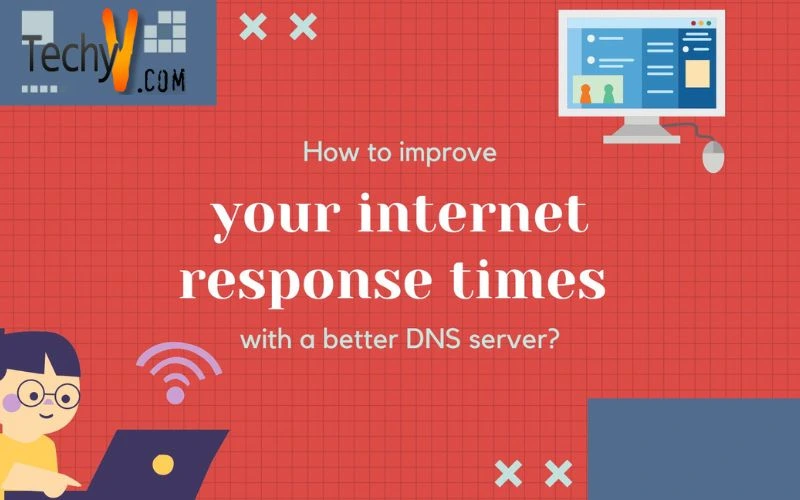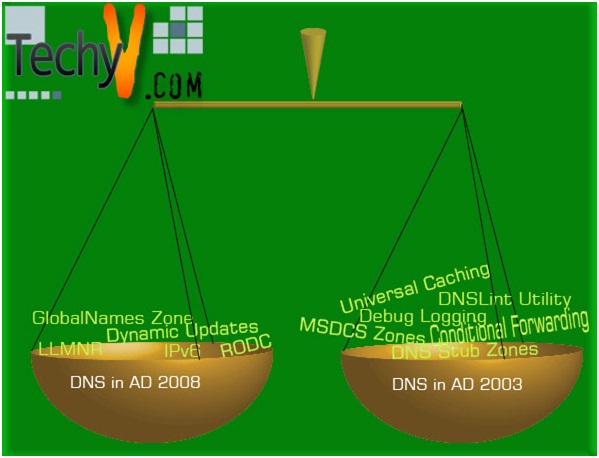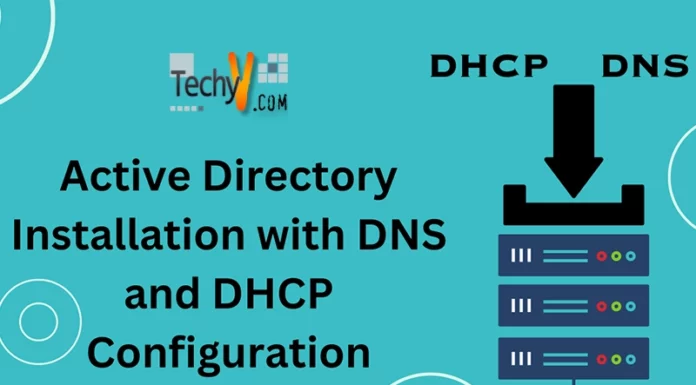How to improve your internet response time with a better DNS server?
Many of us have been using the internet for more than a decade while and some are relatively new. Most, if not all of us, are usually bewitched by the slow response time. The time it takes to find and load a page after typing the URL can take several seconds. We can only sit and stare at this and convince ourselves that it is an “almost natural” phenomenon.
More often than not, we end up uttering some bad words about our slow ISP and their pathetic service. We continue with the daily routine and never bother to try to do some research, and see if there easy solutions to our problem. Most of the time, we even fail to think if the problem is related to ISP or not.
This slow responsiveness of our internet connections can be attributed to our DNS servers and not on the speed of the connection itself. With a better DNS server, it will be possible for us to enjoy better response time, as well as significant improvements in loading time.
Now, before we proceed on how to check your current DNS server and how to find a better one, we will first discuss what DNS servers actually are, and how they affect the response times of our internet connections.
DNS, short for Domain Name System (or Service or Server), is an internet service that translates domain names into IP addresses. Because domain names are alphabetic, they are easier to remember. The internet, however, is really based on IP addresses. Every time you use a domain name, a DNS service must translate the name into the corresponding IP address. For example, the domain name www.example.com will translate to 198.105.232.4.
So, if your DNS is slow, this translation and response speed will suffer. Hence, you will have to wait for several seconds before the browser receives a response from the DNS and can start loading.
There are many ways to find out and change your DNS. I will post another article elaborating the whole process of changing your DNS. Here, however, the discussion is focused on how to find a better DNS.
One of the most widely used and fast DNS servers are Google’s Public DNS (8.8.8.8 and 8.8.4.4). While there are also many others that might offer better response times depending on your location, Google’s Public DNS are known to offer better response times across the world.
By now, you might be wondering how to find out which DNS is the best for you. There is a small open source utility called “Namebench” (https://code.google.com/archive/p/namebench), which is known for being very easy to use and provision of accurate results. Namebench runs a fair and thorough benchmark using your web browser history, tcp dump output, or standardized datasets in order to provide an individualized recommendation. Namebench is completely free and does not modify your system in any way.

It offers accurate and complete results in the shape of different graphs. It will provide you with a recommendation on the primary and secondary DNS that you must utilize for best response times on your system.
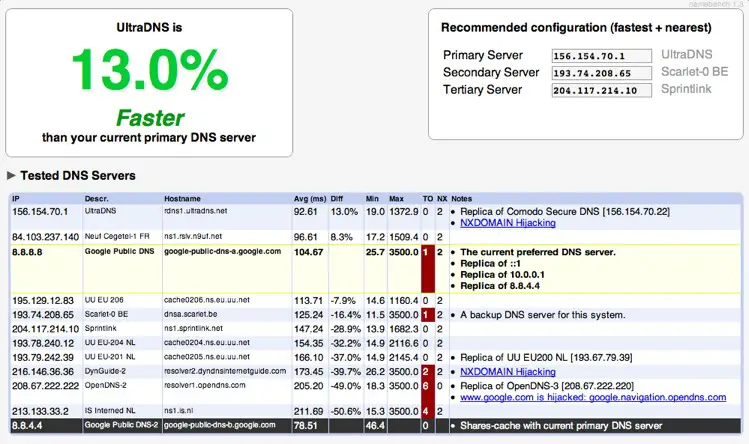
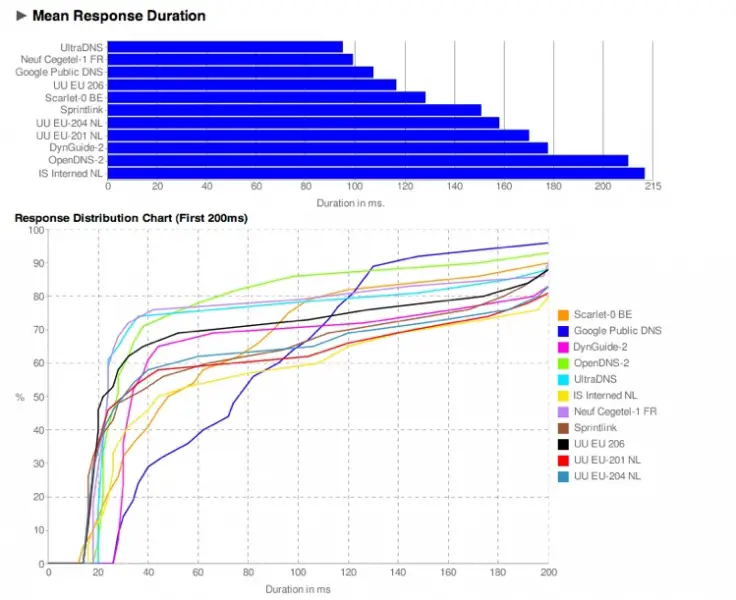
Get Namebench today and find yourself a better DNS. This can change your browsing experience for the better.


